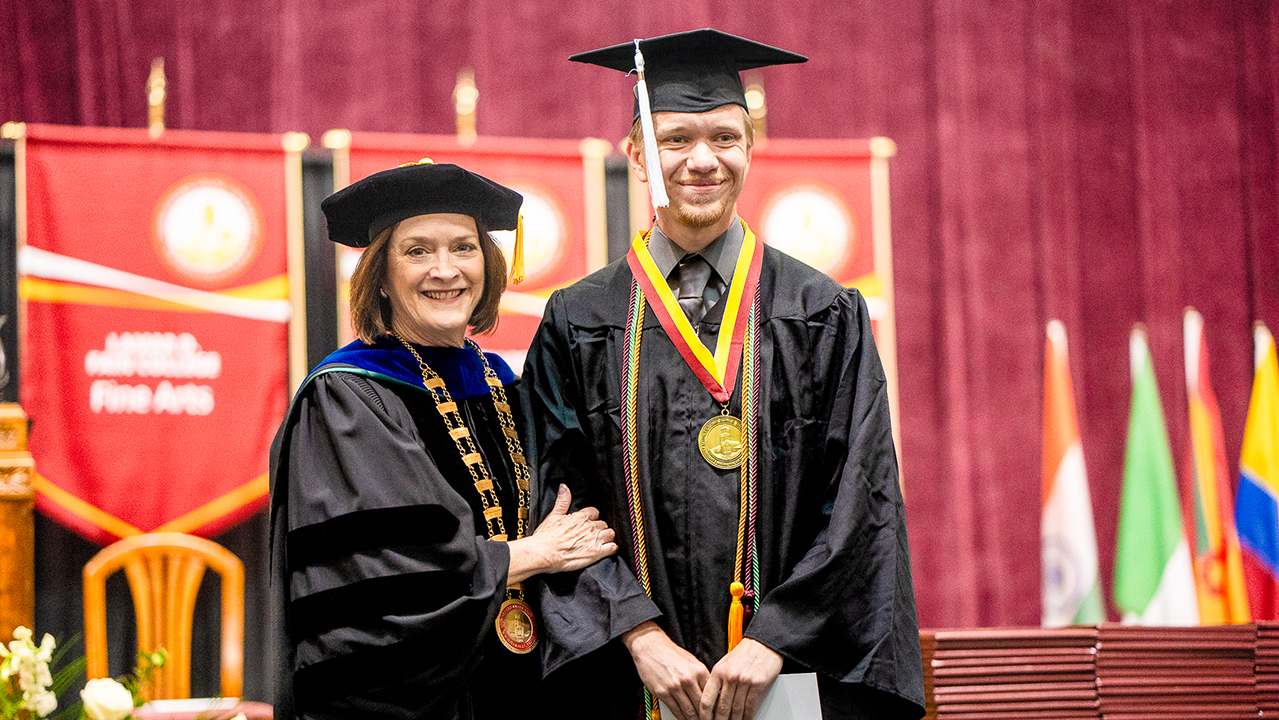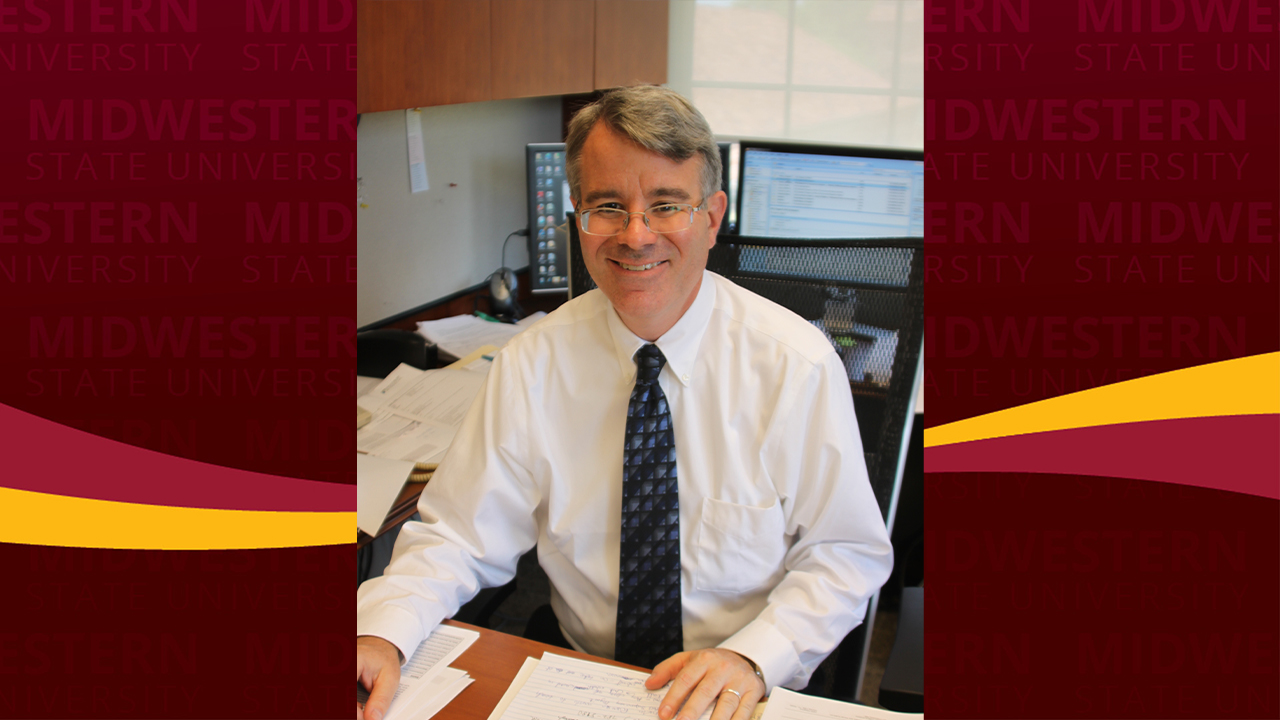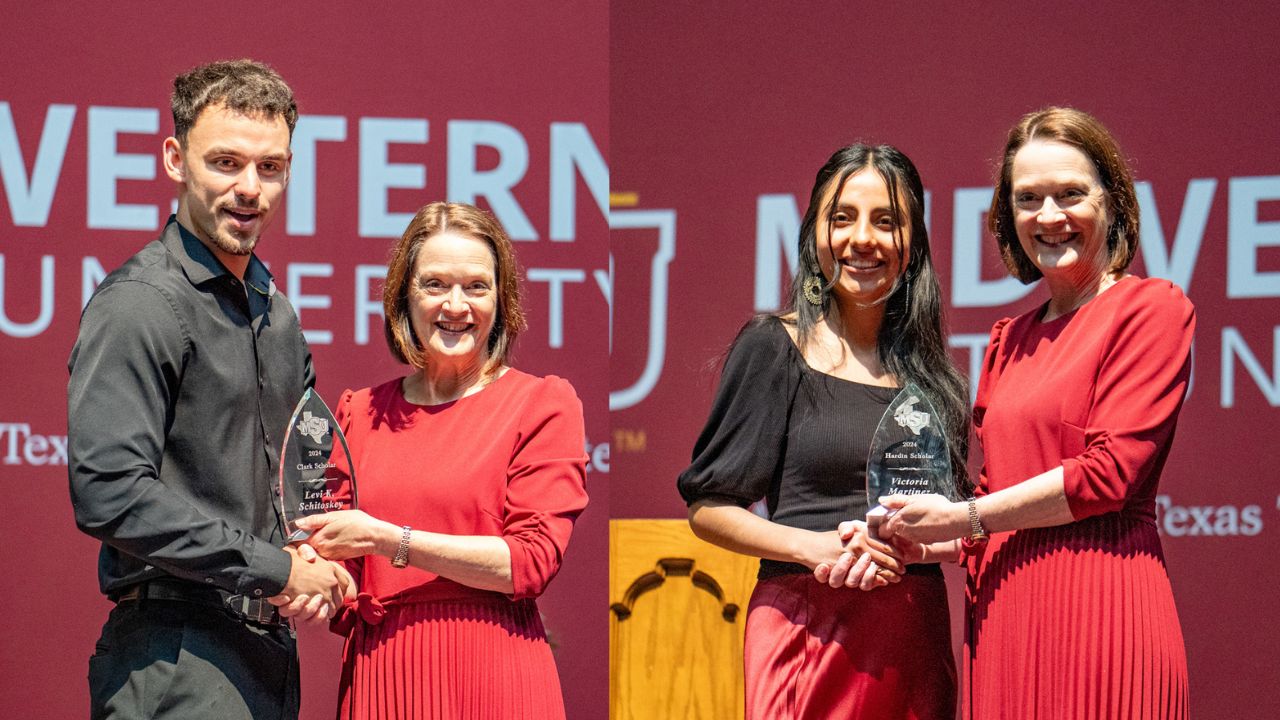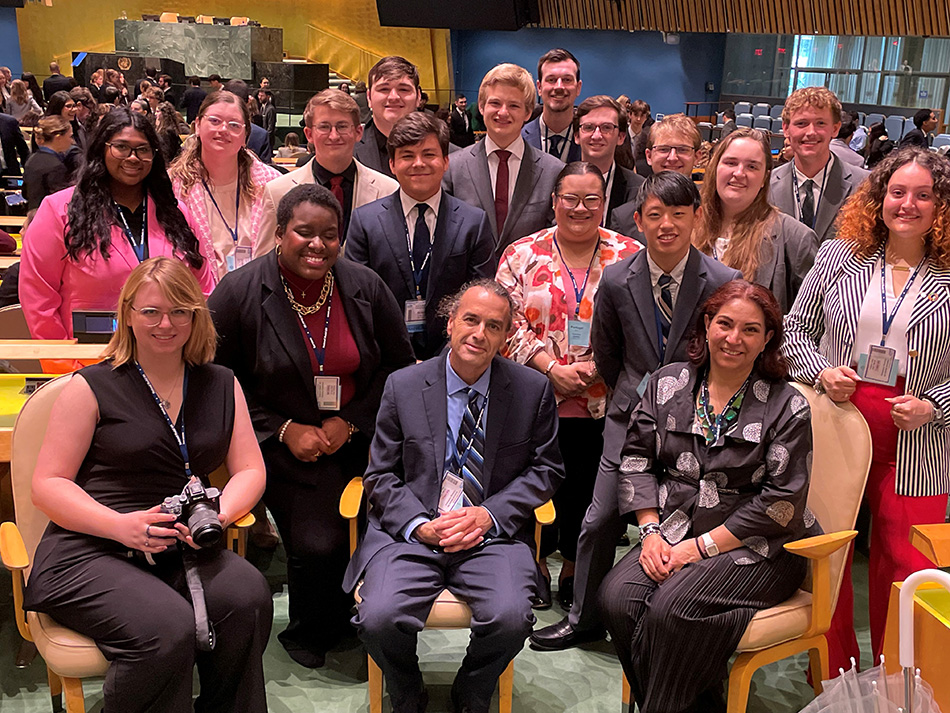MSU Texas Model UN team wins recognition in NYC
For the fifth straight year, the Midwestern State University Model United Nations team earned recognition at the national conference held in New York City April 3-7. The MSU Texas team won a Distinguished Delegation Award, the second-highest award. The team also won five individual awards, the most at a conference in MSU Texas team history.
“This event draws teams from across the globe, and our team represented MSU Texas exceptionally well,” said Steve Garrison, Associate Professor of Political Science and Model UN Adviser. “The team was comprised of students from all six colleges, and this multi-disciplinary makeup was instrumental in the team’s success.”
Model UN is a learning simulation in which students role-play the delegation of a country in the United Nations. This year MSU Texas was the Republic of Uganda. Students serve on various committees organized by policy area, and they are charged with developing solutions to existing global problems such as disposal of electronic waste, reduction of improvised explosive devices, or ensuring equitable access to education. To be successful, the students must speak publicly on their solution, build coalitions of supporters, and develop a written resolution that is adopted by a majority of their committee.
Garrison said student preparations began in the fall semester and include hours of independent research and writing. Students create position papers representing Uganda’s position on key policy questions. MSU Texas earned three Outstanding Position Paper awards. Andrés Revis (political science major) and Chad Callender (mathematics major) won for their work in the General Assembly First committee for their work on controlling improvised explosive devices. Amanda Threlkeld (accounting/management information systems major) and Braelyn Ringwald (special education major) won in the Third General Assembly committee for their work on equitable access to education. Autumn Fredline (English/sociology/political science major) and Brendon Miller (political science major) earned awards for their work on the nuclear situation in Iran.
In addition to these accomplishments, two committees were voted outstanding delegates by their corresponding committees. Zetta Cannedy (political science major) and Samuel Koone (geosciences major) were selected by the International Organization for Migration, and Fredline and Miller were recognized for their work in committee by the International Atomic Energy Association. This was only the third time MSU Texas has won an outstanding delegate award and the first time the team was awarded two outstanding delegate awards at one conference. The outstanding delegates then served as keynote speakers, reporting on the progress of their committee during Model UN closing ceremonies. Fredline served as a head delegate.
“The student commitment at the conference is impressive as the proceedings begin with breakfast and typically do not end until well after midnight,” Garrison said. “To be successful, our team must be present and actively involved in the proceedings. Achieving a Distinguished Delegation Award indicates that in each committee MSU Texas team members were actively involved in the proceedings at each step of the process. Considering that over half of the attendees are typically from outside the U.S. and from much larger schools than MSU, this accomplishment indicates that MSU Texas students are leaders among their peers at the international level.”
This year’s conference was the first time in two years that the conference was in person since being cancelled due to COVID-19. The resumption of an in-person conference following two years of social distancing placed many challenges on all of the competitors. “Succeeding in this environment makes this accomplishment even more meaningful,” Garrison said.
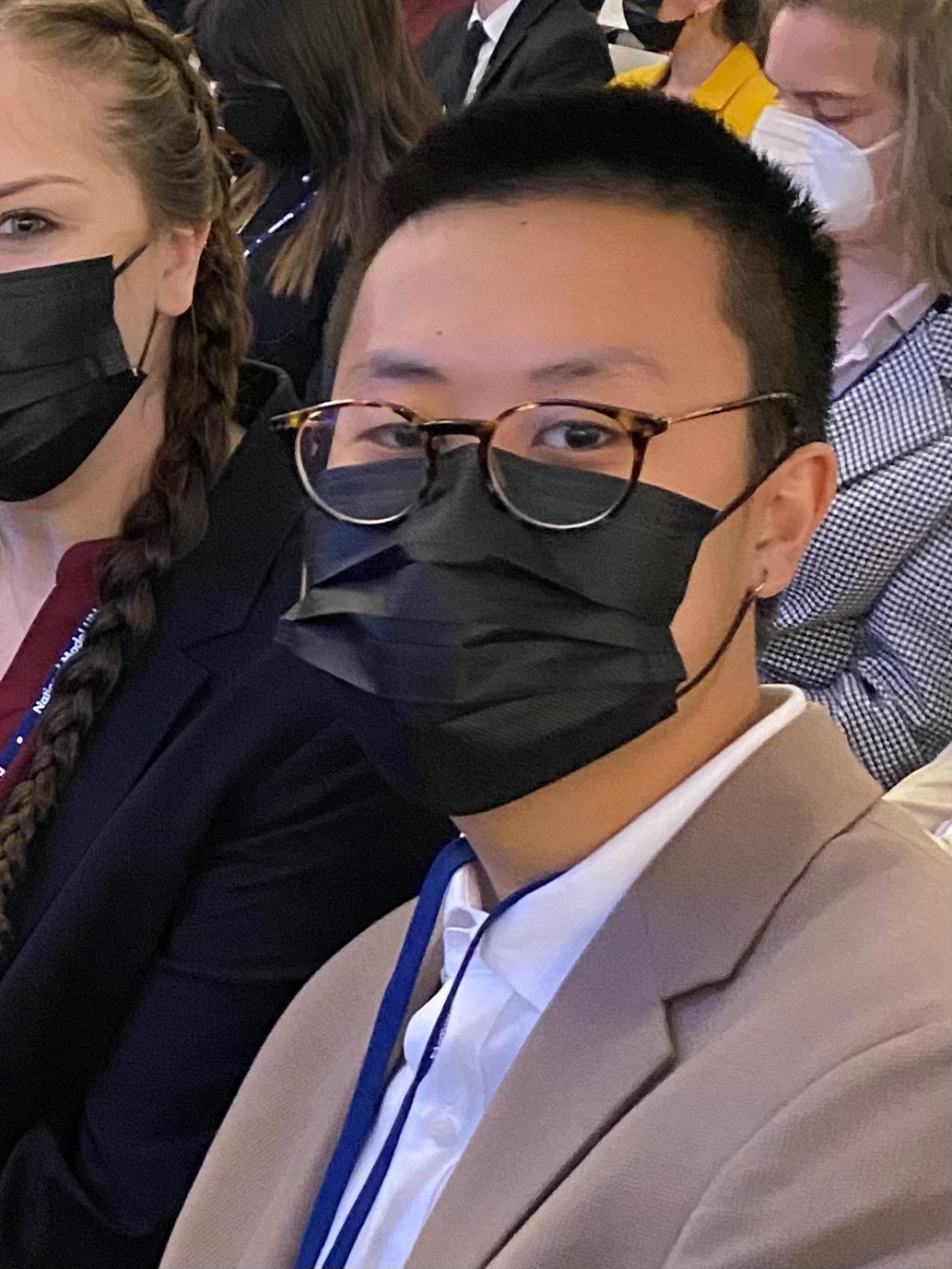
The team members with their majors listed for 2022 are Emily Beamon, political science; Chad Callender, mathematics; Zetta Cannedy, political science; Autumn Fredline, English, sociology, political science; Abby Jones, mass communication; Samuel Koone, geosciences; Brendon Miller, political science; Gabbi Pettijohn, economics; Andrea Repici, biology, chemistry; Andrés Revis, political science, global studies; Braelyn Ringwald, special education; Amanda Threlkeld, accounting; and Justin Trinh, radiologic technology.

